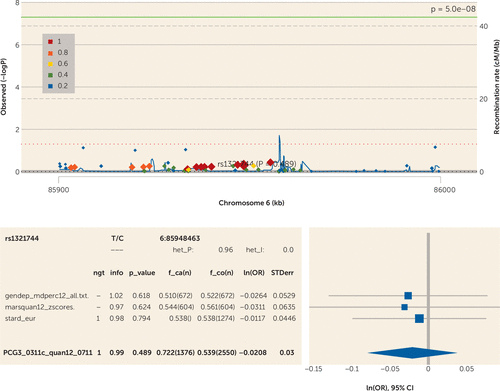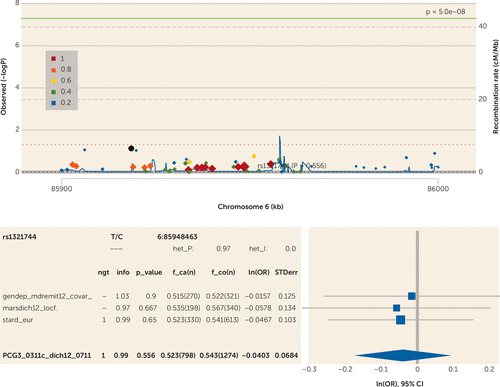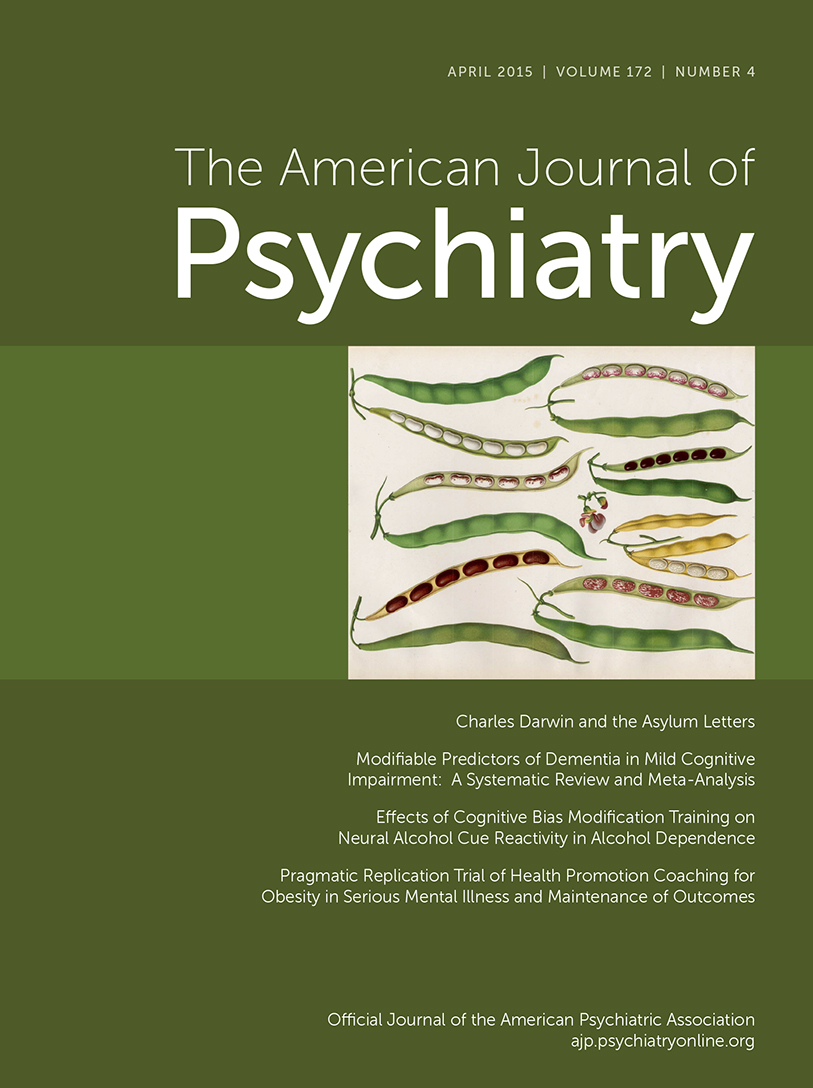Association of a Brain Methylation Site With Clinical Outcomes in Depression Does Not Replicate Across Populations
To the Editor: In the December 2014 issue of the Journal, Ma-Li Wong, M.D., et al. (1) reported a strong association between the genetic variant rs1321744 and outcome of treatment with the antidepressants fluoxetine and desipramine in a small sample of Mexican Americans with major depressive disorder. They further reported that a predictive model based on this genetic variant, in addition to several other variants, predicts remission with a high accuracy (area under the receiver operating characteristic curve equal to 0.95). Such prediction would be highly clinically significant and applicable in practice. However, it is based on an analysis of only 65 genotyped individuals, which raises the question whether this might be a false positive or a highly population-specific finding.
The clinical applicability of the reported finding fully depends on whether it is replicable. Wong et al. reported no replication attempt. However, results from much larger samples are available. We previously reported a meta-analysis of three genome-wide pharmacogenetic studies of antidepressants with data on 2,256 individuals (2), and the results, summarized in Figures 1 and 2, are publicly available (http://www.broadinstitute.org/mpg/ricopili/) (3). We queried these data to test whether the finding reported by Wong et al. is replicable. Since the genetic association was reported to apply across the two antidepressant drugs from different classes, we used the whole combined sample analysis of 2,256 individuals from the United States and Europe with major depressive disorder treated with all types of antidepressants. In this large, combined sample, rs1321744 was not significantly associated with either reduction in depressive symptoms (p=0.489, uncorrected) or with remission (p=0.556, uncorrected).

FIGURE 1. Lack of Association of rs1321744 and Nearby Common Polymorphisms With Depression Symptom Improvement During Antidepressant Treatmenta
a The top panel (obtained from the publically available source [http://www.broadinstitute.org/mpg/ricopili/]) shows lack of any significant association in the region surrounding rs1321744. The bottom panel is a forest plot, showing no association in GENDEP, MARS, and STAR*D or in the meta-analysis of the three studies.

FIGURE 2. Lack of Association of rs1321744 and Nearby Common Polymorphisms With Remission During Antidepressant Treatmenta
a The top panel (obtained from the publically available source [http://www.broadinstitute.org/mpg/ricopili/]) shows lack of any significant association in the region surrounding rs1321744. The bottom panel is a forest plot, showing no association in GENDEP, MARS, and STAR*D or in the meta-analysis of the three studies.
This completely negative result in a large, combined sample suggests that the reported finding is extremely unlikely to replicate across populations. Because we have no access to results on other Mexican American samples, the currently available data do not allow us to distinguish between highly population-specific association and false positive findings. The comparison between the reported results and the publicly available meta-analysis cautions against accepting results from intensive analyses of small samples without replication. Future reports should take advantage of publicly available data to estimate the robustness of results in context.
1 : Clinical outcomes and genome-wide association for a brain methylation site in an antidepressant pharmacogenetics study in Mexican Americans. Am J Psychiatry 2014; 171:1297–1309Link, Google Scholar
2
3 : Ricopili: a tool for visualizing regions of interest in select GWAS data sets. http://www.broadinstitute.org/mpg/ricopili/, 2014Google Scholar



